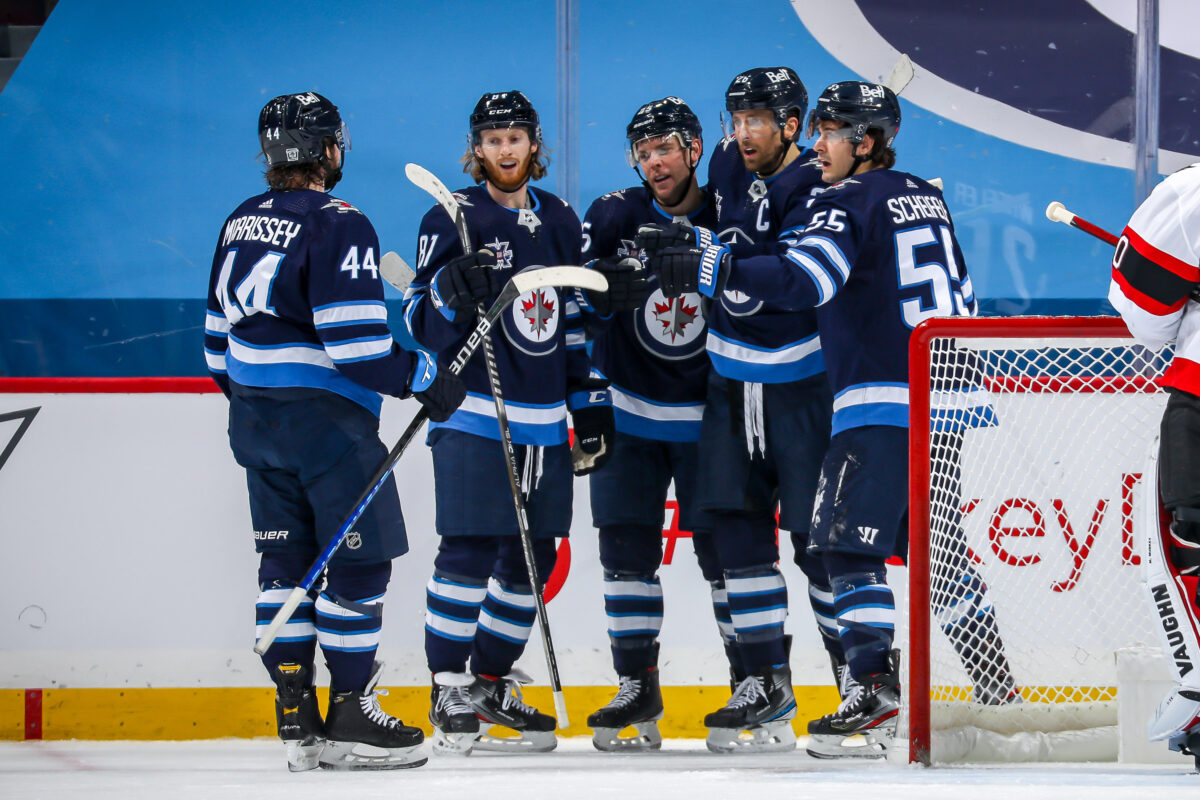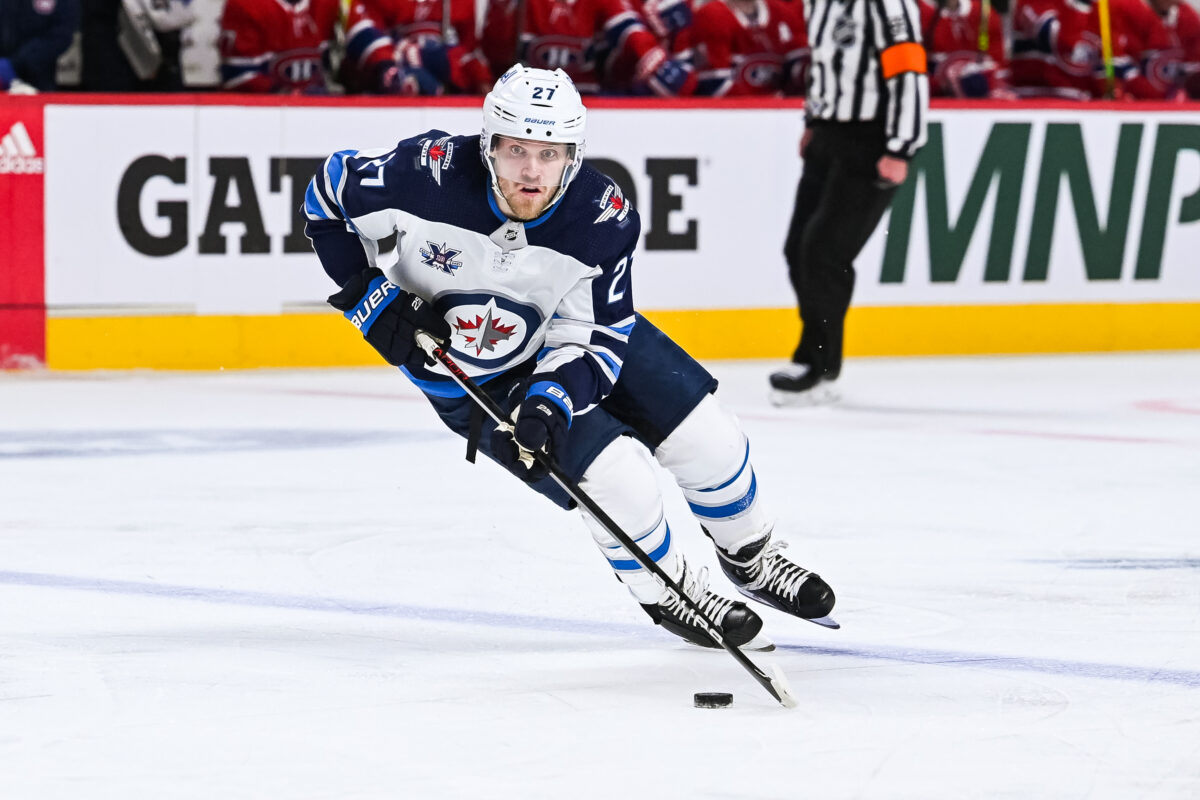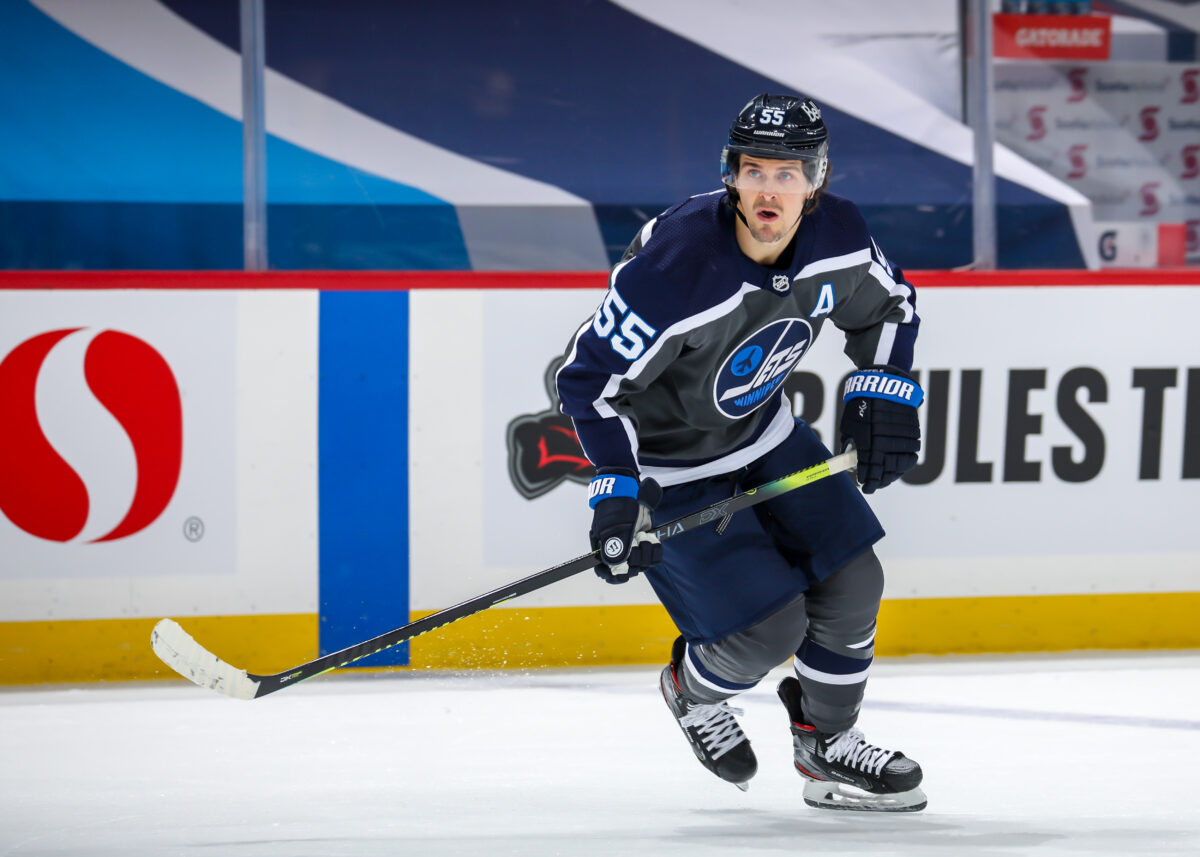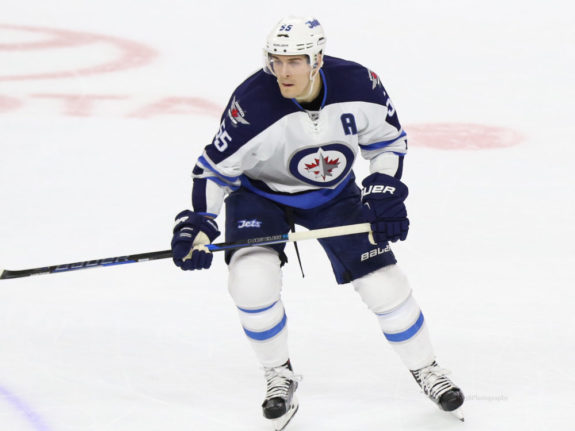Winnipeg Jets’ general manager Kevin Cheveldayoff has done a good job getting players — especially ones of the homegrown variety — to sign team-friendly contracts, despite Winnipeg not having the great weather or big-time attractions of many other NHL markets.
His ability to ink productive players for decent prices has been key to building a strong core that’s been supplemented this offseason by trades and other moves that should make the Jets a Stanley Cup contender this season.

Here, we’ll take a look at the Jets’ three best contracts going into 2021-22.
3: Neal Pionk: $5.875 Million
The Neal Pionk signing in August was the last piece in the Jets’ defensive puzzle that was totally scrambled in 2019-20 and 2020-21.
Cheveldayoff got Pionk to re-up on a four-year deal that carries an AAV of less than $6 million, a huge feat considering how much other top-four defenseman commanded: the Edmonton Oilers’ Darnell Nurse inked an eight-year mega-contract worth an AAV of $9.25 million, the Columbus Blue Jackets’ Zach Werenski signed a six-year deal with an AAV of $9.58 million despite a down season, and Dougie Hamilton’s new seven-year deal with the New Jersey Devils carries an AAV of $9 million.
Getting Pionk for such a figure enabled Cheveldayoff to also re-sign versatile third-liner Andrew Copp (albeit to a one-year deal.)
Pionk, 26, has been a key member of the Jets’ d-corp since coming to Winnipeg in 2019 in the trade that sent Jacob Trouba to the New York Rangers. in 125 games, he’s recorded nine goals and 68 assists for 77 points, has dished out 302 hits, and has skated an average of 22:46. Last season, he led all Jets’ defensemen in points with 32 and hits with 137 and was second only to Josh Morrissey in ice time.
A mainstay on the power play and a leader despite his young age, he will play an integral role on a Jets’ d-corp that looks set for sustained success.
2: Nikolaj Ehlers — $6 Million
How much does one of the NHL’s fastest and most dynamic players cost? It turns out, only $6 million per year.
The electric Nikolaj Ehlers is worth every dollar of that and more: he has really put his creativity and wheels on display over the past two seasons, recording 104 points in 118 games. Last season, he was inarguably the Jets’ best forward, putting up 21 goals and 25 assists for 46 points in 47 games and posting a team-high plus-15 rating.

The Dane also has two 60-plus point seasons to his credit, in 2016-17 and 2017-18. It was after the latter campaign he re-upped with the Jets on a seven-year deal, saying at the time: “this team, this organization, this city, from day one I was happy here… Winnipeg as a city is amazing, they love their hockey, so I could not see any reason to not want to stay here long-term.”
Related: Winnipeg Jets’ 2020-21 Report Cards: Nikolaj Ehlers
It’s safe to say that the Jets like having Ehlers on their team as much as he likes being on it. No one can dispute that he’s a gamer and an explosive player who can dramatically alter a game every time he steps on the ice.
1: Mark Scheifele — $6.125 Million
Scheifele’s contract has been the Jets’ best for years now, and this year is no different.
For all Scheifele brings to the table, $6.125 million is an absolute steal: he’s a point-per-game guy, a dependable leader, and one of the NHL’s elite centres. He has netted 201 goals and added 306 assists for 507 points in 575 games and at just 28 years old, he should produce at a high level for many seasons to come.

Other top centres who post similar numbers command much higher figures, ones that must make Scheifele a little jealous at times: Auston Matthews makes almost double at $11.640 million, Anze Kopitar makes $10 million, and Nicklas Backstrom makes $9.2 million.
Scheifele originally signed his current contract — an eight-year deal worth $49 million— after his coming-out 2015-16 season (the last on his entry-level contract.) Playing mainly second-line centre with Nikolaj Ehlers and Mathieu Perreault — but getting his first taste of top-line minutes when Bryan Little was injured — he recorded a career-high 61 points (29 goals, 32 assists) in 71 games as the Jets 2.0 qualified for the playoffs for the first time.

Cheveldayoff obviously knew that Scheifele — who was his first-ever draft pick after relocation from Atlanta and was recommended to him by then Barrie Colts head coach and Jets’ legend Dale Hawerchuk — was only scratching the surface and locked up the committed centre long-term.
It’s a contract that’s been key for the Jets, and it will be until it expires through 2023-24.
Jets Have Very Few Bad Contracts
Unlike most teams, the Jets lack a true boat anchor contract. Their current worst is Blake Wheeler’s, who is now regressing and whose cap hit of $8.5 million (and total salary of $10 million) will be an overpay if he cannot rebound after a subpar season. Bryan Little’s contract ($5.291 million AAV) would have also aged poorly, but it will be moved once again to the Long-Term Injured Reserve as he suffered a likely career-ending in November, 2019 after taking an errant Ehlers blast to the head.
Thankfully, bad deals have been the exception rather than the rule. A few other affordable contracts that could have gone on this list include number-one goaltender Connor Hellebuyck’s ($6.166 million AAV over six years), sniper Kyle Connor’s (an AAV of $7.12 million over seven years) and top-pairing defenseman Josh Morrissey’s ($6.25 million AAV over eight years.)